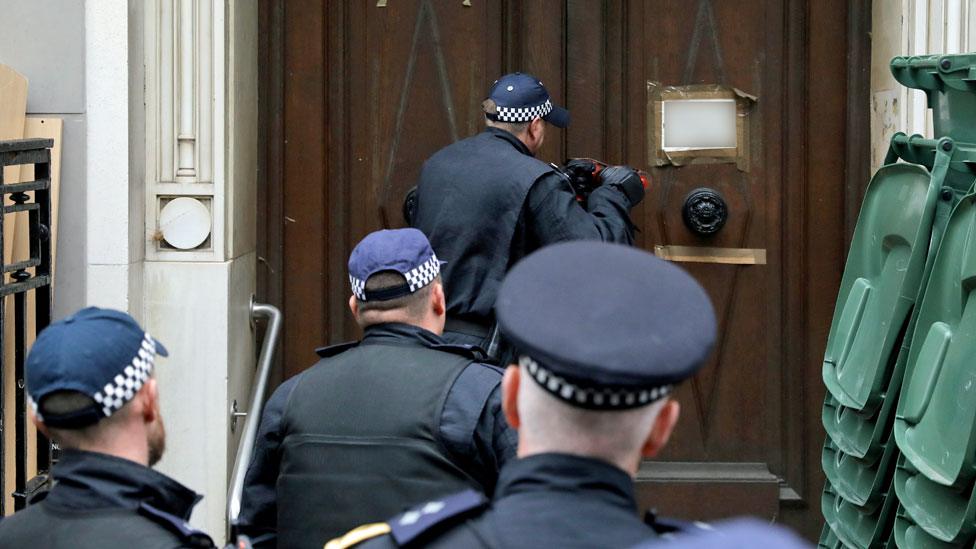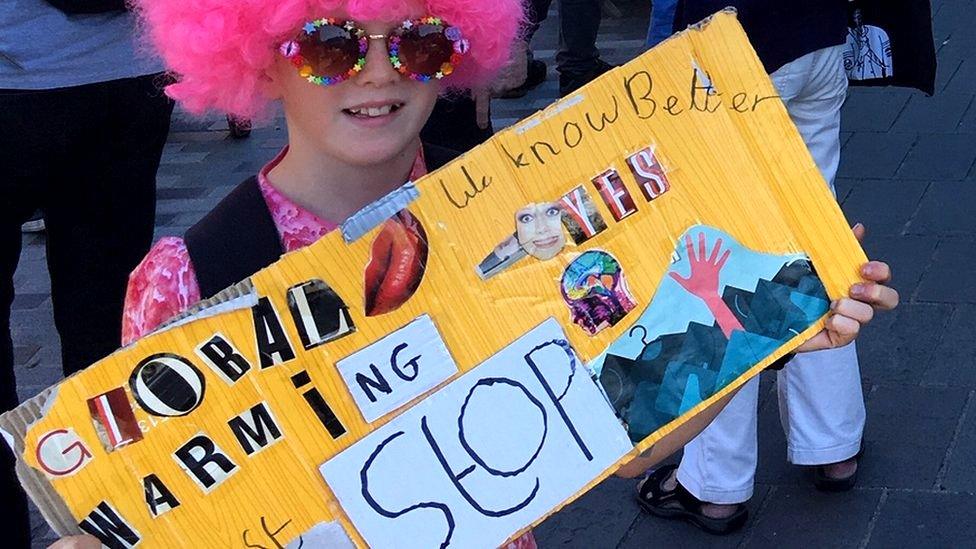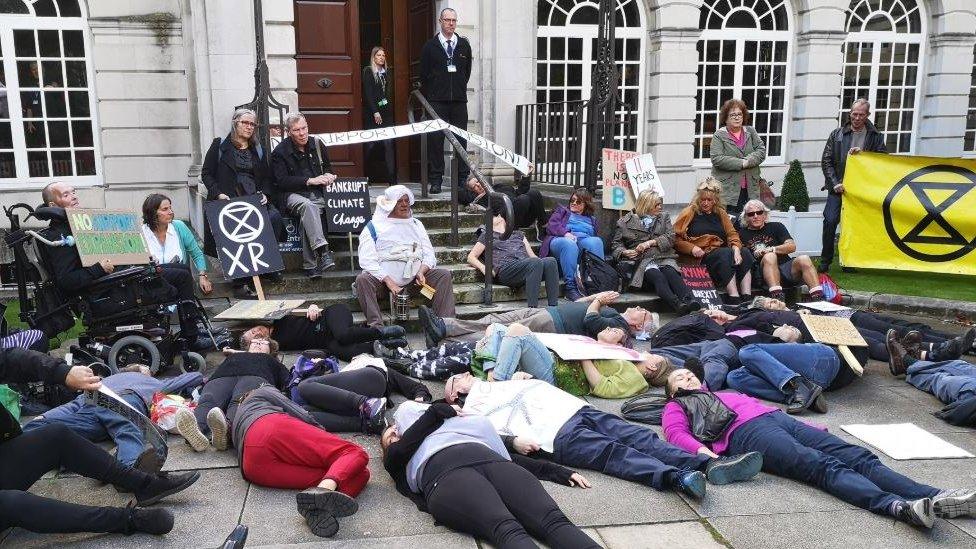Extinction Rebellion: 10 arrested ahead of climate protests
- Published

Ten people have been arrested in south London on suspicion of conspiracy to cause a public nuisance.
It comes ahead of planned environmental protests by Extinction Rebellion around Westminster in central London.
The Met Police said seven women and three men were taken to a south London police station.
Officers raided a building in Cleaver Street, Kennington, where environmental protesters said they were storing equipment.
Videos posted on social media showed officers using a battering ram to break down the doors of the now-closed Lambeth County Court and removing items including bikes.
Extinction Rebellion said police had seized tents, toilets and disabled access equipment, claiming they were "the very things that would make the international rebellion in London safe, clean and accessible to all".
Officers also took wheelie bins, solar panels, hot water bottles, cooking urns and flasks, the group said.
"This escalation of pre-emptive tactics by the government and police is a sign that we are being heard and acknowledged as a significant movement," it added.
"We ask that the government focus their attention and resources on responding to the climate and ecological emergency which threatens us all."
It added that the government could "take our structures, but we remain resolute in our preparation for the rebellion".
The raid in south-east London comes after climate activists sprayed the Treasury with fake blood on Thursday, leading to eight arrests.
At a media briefing earlier this week on the forthcoming protests, activists said they planned to protest on Lambeth and Westminster bridges and in Trafalgar Square as part of an "international rebellion" around the world calling for urgent action on climate change.
They also said they would protest outside government departments, calling on them to outline their plans to tackle climate change.
In September, five activists were arrested over plans to fly drones near Heathrow Airport.
It came after the European Court of Human Rights ruled police could preventatively detain people, even if they have no specific intelligence linking the individual to the crime.
- Published3 October 2019

- Published20 September 2019

- Published11 September 2019
